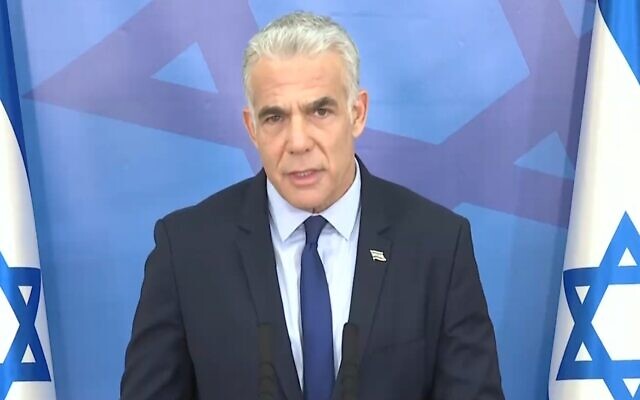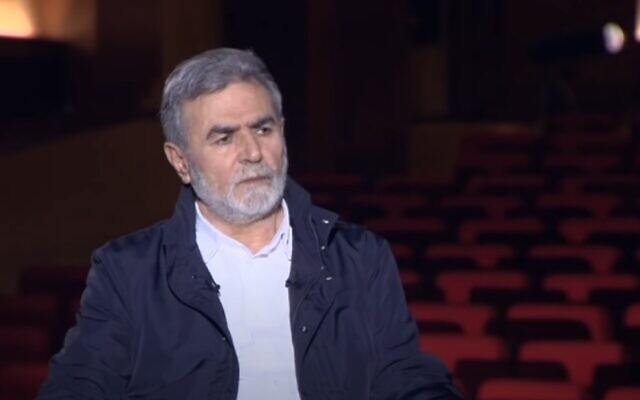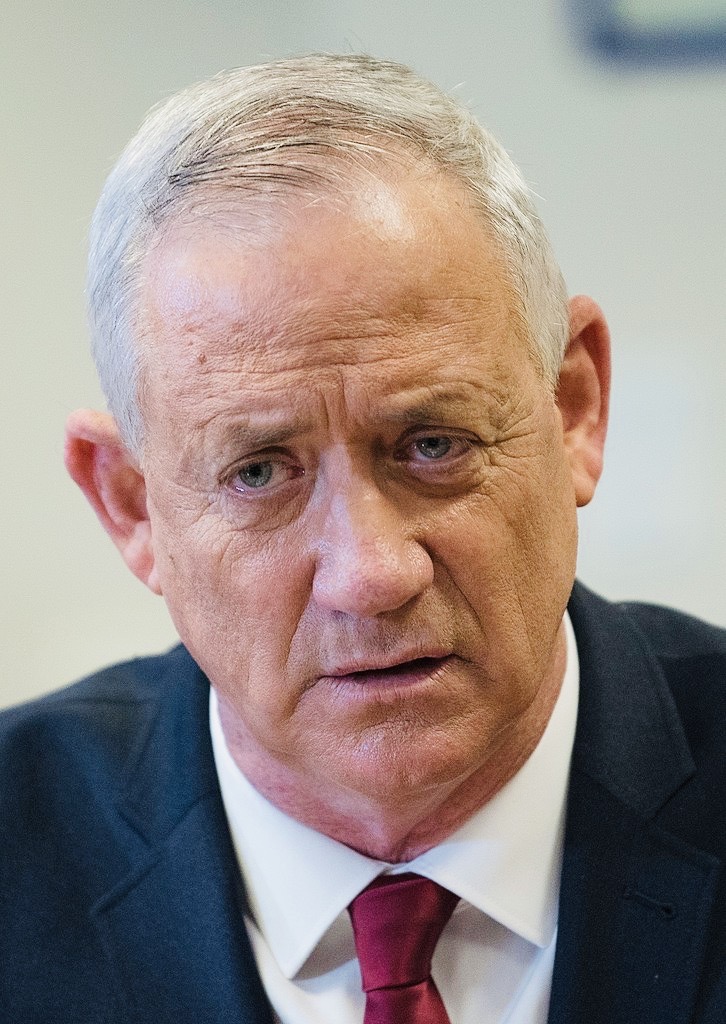On August 8, a day after the conclusion of Operation Breaking Dawn, Israel’s three-day preemptive military campaign against Islamic Jihad in the Gaza Strip, Israeli Prime Minister Yair Lapid offered its two million Palestinian inhabitants a viable path to peace.
In a television address from the headquarters of the Israeli armed forces in Tel Aviv, Lapid spoke of the need for coexistence between Israel and the Palestinians. He proceeded from the debatable assumption that economic relief for the inhabitants of Gaza might lower the political temperature and possibly reduce the motivation of Islamic Jihad and Hamas to fight Israel.
“There is another way,” he said. “We know how to protect ourselves from anyone that threatens us, but we also know how to provide work, livelihood and a life of dignity to anyone who wants to live in peace by our side.”
“The choice is yours,” he added. “Your future depends on you.”

Lapid’s remarks were broadly directed at the Palestinian masses in Gaza, who have suffered through four cross-border wars since 2008. But they were really aimed at Islamic Jihad and its senior partner, Hamas, which has ruled the congested and impoverished coastal enclave since 2006.
Lapid was clearly trying to capitalize on a rare and remarkable development that occurred during the fighting.
As Israel relentlessly pummelled Islamic Jihad from August 5 to August 7, destroying chunks of its military infrastructure, killing two of its chief commanders and intercepting 96 percent of its rockets and mortars, Hamas conspicuously remained on the sidelines without firing a single shot.
Its pragmatic position reminded observers of a flareup between Israel and Islamic Jihad in 2019 during which Hamas stayed out of the fray.
Considering that Hamas initiated the last war in 2021, as well as previous wars in 2008-2009, 2012 and 2014, Hamas’ decision to let Islamic Jihad bear the brunt of Israel’s air and land offensive was all the more remarkable.
Lapid hopes that economic incentives that Israel has offered Gaza since 2021, namely 14,000 work permits and import concessions, will have the salutary effect of keeping Hamas out of future fighting and lead to a lasting ceasefire.
However, Lapid has no illusions. In the past, Hamas and Islamic Jihad initiated hostilities despite generous economic aid packages from Qatar, which has no diplomatic relations with Israel.
Nonetheless, in the last year the Israeli government has allowed thousands of Palestinians to work in Israel for the first time since 2006. Until then, only several hundred businessmen were permitted to enter Israel with a special permit.
A worker from Gaza can earn about 6,000 shekels ($1,850) a month in Israel, compared to 1,000 shekels ($300) in Gaza, whose unemployment rate hovers around the 50 percent mark.
Since last autumn, Israel has permitted goods into Gaza that were previously prohibited and allowed the export of more agricultural produce than ever before.
Israel’s pragmatic approach to Gaza, from which Israel unilaterally withdrew in 2005, may not pan out, given Hamas’ ideological commitment to destroy Israel and its alliance with Iran, Israel’s preeminent enemy. But Lapid is somewhat hopeful that economics will trump ideology so that the people of Gaza can enjoy the fruits of peace, prosperity and stability.
As for Islamic Jihad, which shares Hamas’ objective and relies on Iran for financial and logistical assistance, Lapid is hopeful that it may have drawn the correct conclusions from the most recent bout of fighting.
Israel believes it not only inflicted significant damage on Islamic Jihad, but restored its deterrence during Operation Breaking Dawn.
According to Ben Caspit, an astute Israeli commentator, this was Israel’s first military campaign in Gaza since 2009 from which it “emerged with a sense of strategic victory.” The last time this happened, he argues, was during Operation Cast Lead, which began in the waning days of 2008 and stretched into the early new year.
The secretary-general of Islamic Jihad, Ziad Nakhaleh, claimed victory in its latest clash with Israel, saying it continued launching rockets and mortars until the ceasefire went into effect.

Islamic Jihad fired 1,175 projectiles at Israel, but only a few got through and injured Israelis and damaged property. Much to its embarrassment, still others fell short and killed several Palestinian civilians.
Forty seven Israelis were slightly injured by falling debris and shrapnel, but not even one Israeli was killed.
Less than 24 hours after the truce, Israeli Defence Minister Benny Gantz issued a threat that Israel’s foes may take into account before they act aggressively.
“In the future, if necessary, we will conduct preemptive strikes to protect the citizens of Israel, its sovereignty and infrastructure,” he declared in a veiled reference to Islamic Jihad, Hamas, Hezbollah and Iran.
As he spoke, the Israeli army carried out its latest raid in the West Bank, designed to uproot Islamic Jihad’s base there.
Gantz’s unambiguous message to Israel’s enemies is crystal clear, but judging by Lapid’s comments, Israel hopes that calm will prevail in Gaza, despite its land, air and sea blockade.
It may be a vain hope, but Israel has nothing to lose and everything to gain by fostering better economic conditions in Gaza.
